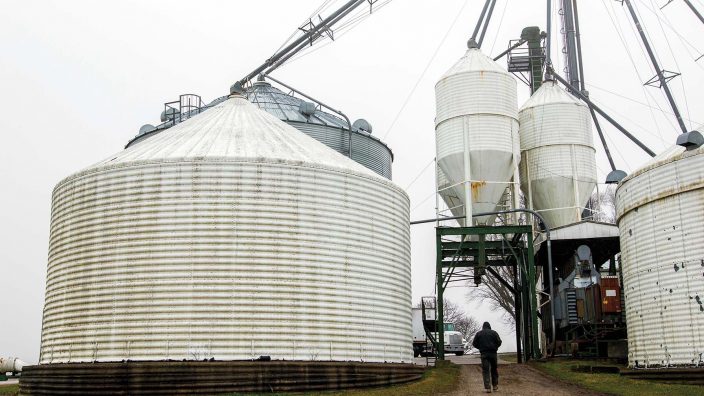Farmer’s Guide to Trucking Regulations available to Ohio Farm Bureau members
The guide includes a farm driver checklist, overview of state and federal regulations and exemptions, CDL qualifications and more.
Read More
Rachael Vonderhaar pauses when asked where the crops grown on her Preble County farm end up. It’s not that she doesn’t know — it’s just that the list is long. The wheat is sold to Consolidated Grain and Barge on the Ohio River where it’s shipped to nearby Indiana or as far away as Japan, which is where their soybeans also end up. Most of their corn is sold to Andersons Ethanol, and the dried distillers grain, an ethanol production byproduct, is shipped to Mexico and Canada. Their malting barley, an emerging crop in Ohio, is sold to Columbus-based Origin Malt where it’s used in craft beers.
“Trade is huge to American agriculture, especially in Ohio,” said Vonderhaar, who farms full-time with her family. Vonderhaar knows a thing or two about trade — she’s hosted trade groups on her farm, traveled to Latin America to promote U.S. wheat and met with influential policymakers to talk about the impact of U.S. trade agreements on her family operation.
“Agriculture is the foundation of the economy in Ohio and our voice needs to be united. You have a much bigger impact when you work together,” she said.

Vonderhaar knows all about being fully invested in the agricultural industry and the value of working with others. She’s in her ninth year on Preble County Farm Bureau’s board of trustees, is an AgriPOWER graduate (Ohio Farm Bureau’s elite leadership training program), is on the Ohio Small Grains Checkoff Council and is also chair of the Wheat Foods Council, a national non-profit organization that promotes wheat-based foods.
“Agriculture should never be siloed. By working together, you get more insight into what the issues and discussions are and become a stronger team,” she said.
Agreeing with Vonderhaar was Tadd Nicholson, executive director of the Ohio Corn & Wheat Growers Association.
“It’s important for Farm Bureau and all commodity groups to work together to advocate on behalf of farmers,” he said. “At the end of the day, we’re all striving to help farmers in the best possible way, whether it’s addressing issues like water quality and transportation or helping educate consumers about agriculture at the Ohio State Fair.”
Ohio Farm Bureau and the Ohio Corn & Wheat Growers Association have been long-time ag education and outreach partners. Ohio Corn & Wheat’s education programs, which are supported primarily with funding coming from the Ohio Corn Checkoff, was first approved in 1989. Its Feed the World workshops provide teachers with hands-on STEM-based lessons about ethanol production, biotechnology, water quality, soil science and other agriculture-related topics. In recent years, Farm Bureau awarded grant money to the Ohio Corn Marketing Program to support professional development for 35 Ohio science teachers participating in a two-day Feed the World workshop.
Last summer the Ohio Corn & Wheat Growers partnered with Ohio Farm Bureau and other groups to sponsor the Land and Living exhibit at the state fair.
“The exhibit broadens the understanding of the average fairgoer by giving them a glimpse of modern agriculture and all the technology involved and being able to touch corn and learn about the difference between sweet corn and regular corn and how corn is used in so many products. It’s so powerful to have that interaction,” said Brad Reynolds, the association’s communications director.
Vonderhaar looked to her county Farm Bureau for help when she had farmers from South Korea and Venezuela visit her farm, where she and her family also raise 4-H cattle and sheep. She received promotional material about Ohio agriculture, help with coordinating meals and suggestions of other farms for the international groups to visit.
Saying protection of natural resources is a priority for her family farm, Vonderhaar praised Ohio’s agricultural community coming together to tackle the state’s water quality challenges. Since 2014, Ohio Farm Bureau has invested $2.6 million of member funds on projects and research into how to protect the environment and preserve farmers’ ability to produce food. The state’s corn, soybean and wheat organizations have invested nearly $3.5 million over the past nine years.
“I can’t overstate how important an issue (water quality) is to the general public and farmers,” Reynolds said. “Farmers want to do the right thing and how do we do that? Through collaboration and helping fund research by Ohio State and Heidelberg (University) on water quality, nutrient management and conservation.”
Ohio Farm Bureau supports many of the Ohio Corn & Wheat Growers priority issues, including the need for a robust ethanol industry. Ohio currently has seven ethanol production facilities and although the Coshocton plant has been idled, the Marion facility doubled in size two years ago.
Trade has been a hot topic for farmers recently, and Vonderhaar said the United States-Mexico-Canada Agreement that was recently signed by the president, will help Ohio’s commodities. Designed to replace the North American Free Trade Agreement, the USMCA is expected to increase U.S. ag exports by $2 billion.
“These trade agreements increase markets for farmers,” Vonderhaar said. “USMCA is a vital issue for Ohio farmers who grow soft red wheat. A lot goes to Mexico for cookies and desserts and under the USMCA, there are more opportunities for Ohio’s wheat to go into Canada because under the agreement, they would grade our wheat the same as their own.”
Vonderhaar said she sees value in being a member of both Ohio Farm Bureau and the Ohio Corn & Wheat Growers as well as other organizations that help protect and grow the agricultural industry. Specifically she praised Farm Bureau’s workers’ compensation program and risk management seminars led by Nationwide. And when federal officials unexpectedly showed up on the farm one day, saying an inspection was needed, Vonderhaar knew exactly who to reach out to first for guidance.
“OSHA had no reason to be there, and I called Ohio Farm Bureau’s legal department and they handled it like a pro. They told us what we needed to know and offered legal support if we needed it. Knowing the right words to talk to OSHA made the difference — we got a ‘Sorry we showed up’ and they moved on,” Vonderhaar said. “For me that was the most valuable day of being a Farm Bureau member. That Farm Bureau membership gives you access to that team of experts.”
Ag joins forces with broad coalition to tackle water quality
At the beginning of 2019, a group of Ohio agricultural organizations, including Farm Bureau, along with conservation and academia groups, met with environmental group leaders to form the Ohio Agriculture Conservation Initiative.
The goal of this unique collaboration is to improve water quality by establishing a baseline understanding of current conservation and nutrient management efforts and build farmer participation in a new certification program. Many farmers are currently implementing sound environmental practices on their farms. However, finding a measurable way to quantify how many farmers are doing so is necessary.
OACI has established a two-phase approach to its plan: assessment and certification. The assessment takes inventory of farm practices to establish a baseline of current conservation and nutrient management practice adoption. The pilot survey is slated to be conducted in the Lower Maumee Watershed. The certification program will be administered by the Ohio Federation of Soil and Water Conservation Districts and will launch in the 14 counties of the Maumee River Watershed (with plans for an eventual statewide program). Both phases began earlier this year.
The H2Ohio program, launched by Gov. Mike DeWine in 2019, will use OACI’s certification program to ensure funds get to farmers who demonstrate a commitment to continuous improvement through implementation of best management practices.


The guide includes a farm driver checklist, overview of state and federal regulations and exemptions, CDL qualifications and more.
Read More


ODA will enroll 500,000 acres into the program for a two-week sign-up period, beginning April 22, 2024, through May 6, 2024. Contact local SWCD offices to apply.
Read More

Katie Share of Columbus has been named ExploreAg and Youth Development Specialist for Ohio Farm Bureau.
Read More

Mary Klopfenstein of Delphos has been named Young Ag Professional and Ag Literacy Program Specialist for Ohio Farm Bureau.
Read More

The plan has been updated to give sole proprietors access to more rate stability and a smart solution that offers potential savings on health care.
Read More

The American Farm Bureau Federation, in partnership with Farm Credit, is seeking entrepreneurs to apply online by June 15 for the 2025 Farm Bureau Ag Innovation Challenge.
Read More

Adele Flynn of Wellington has been elected treasurer of the Ohio Farm Bureau Federation and now holds the third highest elected office in Ohio’s largest and most influential farm organization.
Read More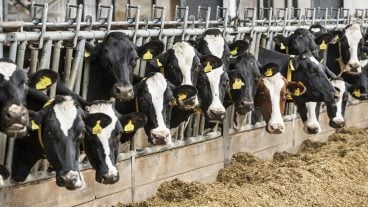
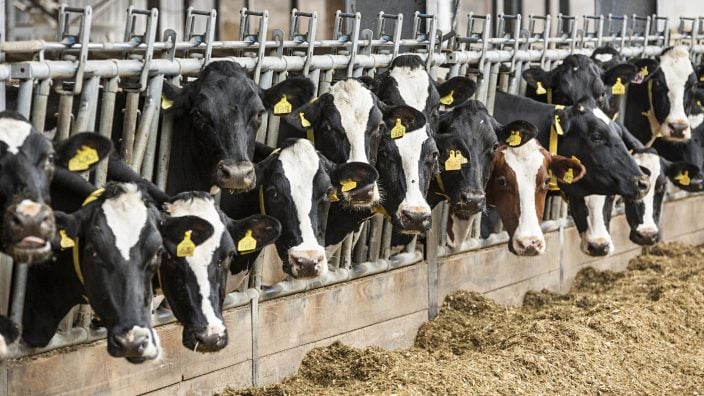
Producers are urged to work with their veterinarian to practice enhanced biosecurity measures and review and limit cattle movements within production systems.
Read More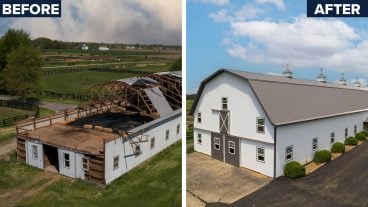
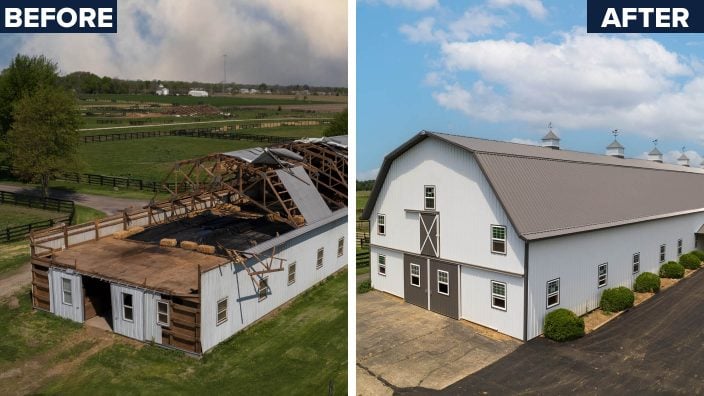
The changing seasons bring with them the need to thoroughly inspect pole barns for any damages that may have occurred during the winter months.
Read More
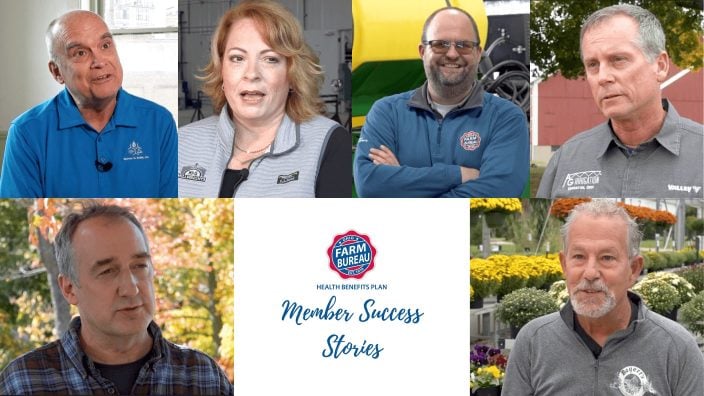
Hundreds of Ohio businesses and sole proprietors are raving about Ohio Farm Bureau’s Health Benefits plan with lower, predictable costs and easy enrollment and administration options.
Read More